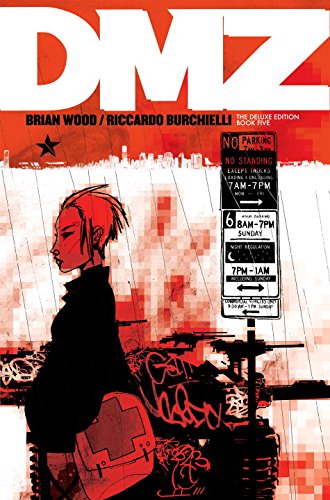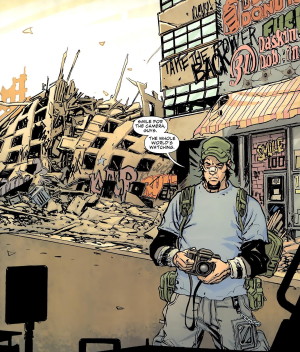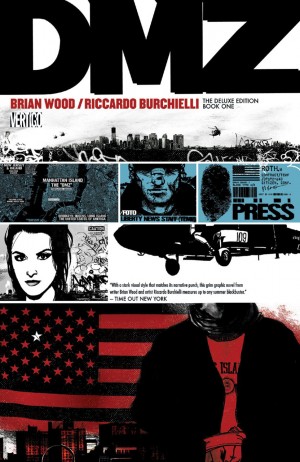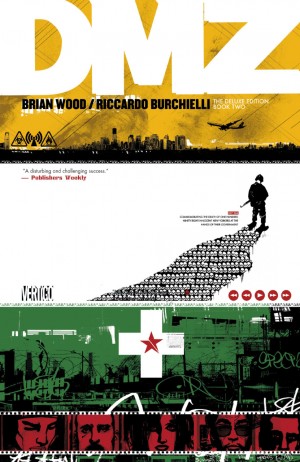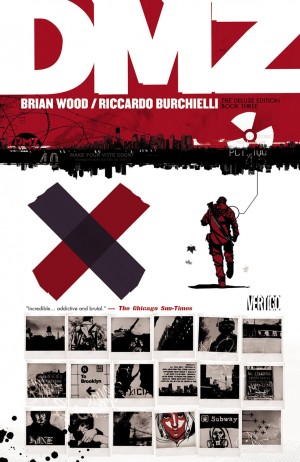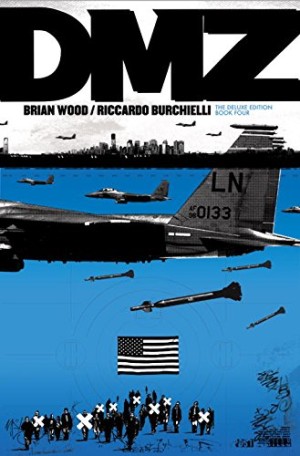Review by Frank Plowright
This concluding volume of DMZ‘s hardback series is a strange beast. In many respects the finale to Book 4 could serve as a conclusion, because much of this is a mopping up exercise. As ever with DMZ, though, when it’s good, it’s very good indeed. This book combines what was previously published as the paperbacks Free States Rising and The Five Nations of New York.
The best sequences here begins around a quarter of the way through the book, and provides an antidote to a lot of patchier material. It’s almost as if the reset button has been hit for Matty Roth. He’s back in the DMZ, and he’s back reporting again. This is also a reversion for writer Brian Wood as he once again uses the DMZ as a means of exploring real world situations. Perhaps mindful of criticism leaning toward the commie/pink/liberal end of the scale, this involves following the rank and file soldier, exploring what a combat zone is like for them. It would be entering the spoiler zone to reveal much more, but suffice to say that Wood surprises with where he takes the story after the re-emergence of Paco Delgado, would-be founder of an independent state.
Two chapters explaining the Free States precede that sequence. It could be claimed they required no explanation, and while Shawn Martinbrough’s gloomy art is a fit match, it’s middling material, although featuring a character who’ll later be pivotal. Perhaps it’s meant to give an understanding, but in common with many of Wood’s shorter character-based chapters, it disappoints.
The cynicism attached to political expediency colours much of the book, entwined with the ghosts Roth now carries with him, which, toward the end, he hopes to exorcise by writing a book about his experiences. Again, it’s not the most successful of story arcs, taking too long to say too little, although in conclusion Wood works well confounding expectations for the protagonist of a series.
Most of the art is by series regular Riccardo Burchielli, under-rated and exemplary. His urban decay takes on a strange impressionistic beauty, and his characterisation is again superb. It’s so ingrained that Burchielli delivers the squalid and desolate locations in situ, that the book’s final chapter set in a squeaky clean future seems somehow wrong. It doesn’t quite work as a coda either, the novelty rapidly evaporating.
DMZ is a frustrating series, veering between exemplary and dull and padded. It’s all on display here. This being the case, new readers are possibly better advised to begin with a cheap second-hand paperback, as these lavish hardbacks are really for the converted.
